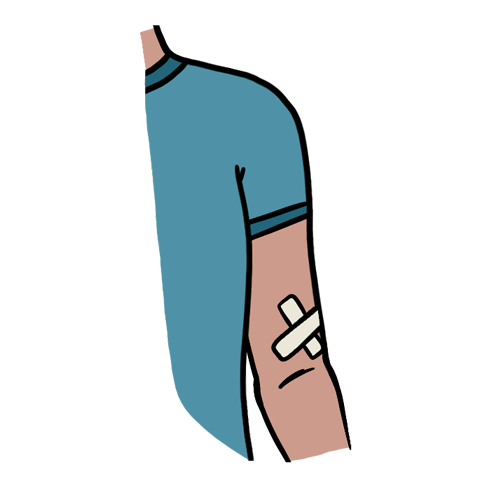What are the main side effects of taking aspirin?
The most common side effects of taking aspirin every day are:
Indigestion

Bruising more easily

Cuts taking longer to stop bleeding

The older you are, the more likely you are to have side effects.
Indigestion can often be controlled by taking medicine to treat heartburn.
Between 1 and 10 people out of 100 get these side effects, so 90 to 99 people in 100 do not.
1 to 10 out of every 100 have common side effects when they take aspirin.

Less commonly, aspirin can cause ulcers in the stomach and small bowel, but there is not yet enough evidence about how often this happens.
All people with Lynch syndrome should have a check at their GP Practice for bacteria called Helicobacter pylori in the stomach. This bacteria increases the chance of stomach cancer in people with Lynch syndrome, and also increases the chance of stomach ulcers when you are taking aspirin. If you have not had a test for Helicobacter pylori before, ask your GP for this test.
This test is usually just done once and once treated (if needed), you usually won’t need the test again. Click here for more information about this test
More rarely, aspirin can cause major bleeding in the gut: between 1 and 10 people in 10,000 get this (so 9,990 to 9,999 people in 10,000 do not). Aspirin can also make a type of stroke known as haemorrhagic stroke (bleeding inside the brain) worse if it happens.
Other rare side effects have also been reported occasionally. There is more information in the leaflet that comes with aspirin.
If you want to see more about rare side effects of taking aspirin, click here.
This information is based on content supplied by the NICE decision aid about taking aspirin for people with Lynch syndrome


